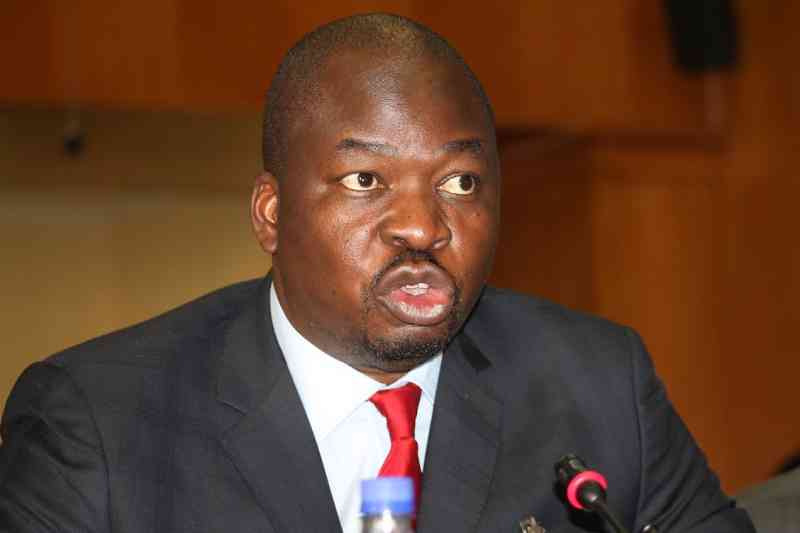
The recent dismissal of the reports by the Office of the Auditor General by Finance ministry permanent secretary George Guvamatanga is a troubling development that raises serious concerns about the Zimbabwean government's commitment to transparency and accountability.
The reports, compiled by acting auditor-general Rheah Kujinga, exposed a disturbing pattern of corruption and mismanagement across various government agencies and state-owned enterprises.
Instead of addressing these findings and taking concrete steps to address the issues raised, Guvamatanga simply labelled the reports as offside, effectively brushing aside the well-documented evidence of wrongdoing.
In an article published by the NewsDay with the headline "You are offside, Treasury tells AG", it revealed that Guvamatanga, said the process of auditing is in technical terms what is regarded as a three-pillar process which involves the originator, the government, an internal audit unit and an external audit unit which is represented by the Office of the Auditor General (OAG).
“So I was then highlighting that by actually highlighting it as a finding, I can safely say that the Office of the AG actually misdirected themselves because within the three pillars of control those are actually regarded as issues known to management,” Guvamatanga was quoted saying.
“So I am not saying that they should not have highlighted them but they should have highlighted and said the government discovered that there were undelivered vehicles because I have the number here.”
Guvamatanga dismissed the OAG report on undelivered motor vehicles as “misdirected” saying the issues raised were already known to management.
If the government had seen all these cracks why weren't they being addressed with due diligence? Why weren't they making sure investigations were being carried?
- Deforestation riles Lower Gweru chief
- Drunkard kills church pastor
- Mob kills two Gokwe men
- Gweru woman cries foul over sodomy case
Keep Reading
How was the report wrong when we have been having this for years? Was it because it had exposed them from their malicious corrupt ordeals that the government does on a daily basis?
What was he trying to achieve by thrashing the report that had been well written and spoke the truth on why our economy will continue to deteriorate with government officials, who squander government funds for their own good?
In the report the commission awarded a tender for procurement of 36 laptops and a payment of ZWL$310 316 303 was made on December 18, 2023. However, the laptops had not been delivered to the Commission at the time of concluding the audit in May 2024.
Additionally, the commission on December 15, 2023 procured furniture valued at ZWL$505 248 948.
The contract entered into between the commission and supplier of the furniture specified that payment should be made only after delivery. However, the commission went on to pay in full amount for the furniture before delivery was made.
The supplier made a part delivery leaving the items listed in the table below which had not been delivered by the time of concluding this audit.
This was contrary to Section 67 (19) of the Public Finance Management (Treasury Instructions),2019, which states that Accounting Officers shall ensure that the conditions of a contract are complied with and applied consistently throughout the procurement cycle.
To add on to that the issue of maintenance of Assets registers remained a challenge in ministries and their respective fund account the report read.
In some instances, asset registers were not in place, had incorrect quantities recorded, did not have serial numbers, date of purchase and location to facilitate identification of the assets.
The report mentioned that advance payments totalling ZWL$1.7 billion and US$2.3 million were made for vehicle purchases, but the vehicles were never delivered.
In many cases, suppliers missed delivery dates, breached contracts, and modified the approved vehicle models, making it difficult to verify ownership, purchase prices, and the number of vehicles ordered and delivered.
Contract monitoring was ineffective, and the government failed to invoke provisions for non-performance by suppliers. This has led to risks of excessive contract price variations.
Furthermore, some tractors, motor vehicles, generators and immovable properties were not recorded in the asset registers.
This resulted in incomplete records. On the other hand, confirmation of physical existence of some motor vehicles could not be done as there was no documentary evidence of the custodian.
A total of 173 070 litres of diesel and 2 015 litres of petrol were not recorded in the fuel registers.
In addition, 3 620 litres of diesel were not accounted for whilst 1 500 litres of petrol were reported to have been stolen. Non-maintenance of up to date fuel registers could result in misappropriation of fuel.
Buildings meant for accommodation of staff and storage of goods had cracks and required rehabilitation.
Regular inspection and maintenance of government buildings is required as this ensures safety and prevents defects from escalating into major and costly repairs.
All this shocking evidence was in the report, in the actual fact the report exposed how the government has been looting public funds for their benefits.
Despite the overwhelming evidence presented in the OAG report, Guvamatanga's dismissal of the findings is a troubling display of arrogance and disregard for the public interest.
By simply labelling the report as offside, Guvamatanga is effectively shutting down any meaningful debate or discussion about the issues raised, and denying the Zimbabwean people the opportunity to hold their government accountable.
This is particularly concerning given the broader context of corruption and mismanagement that has plagued the Zimbabwean government for years. The country has consistently ranked poorly on international corruption indices, and high-profile scandals involving government officials and state-owned enterprises have become all too common.
The dismissal of the OAG’s reports is only the latest example of the government's unwillingness to address these issues head-on.
Ultimately, Guvamatanga’s conduct is a troubling sign of the Zimbabwean government's continued unwillingness to address the deep-seated issues of corruption and mismanagement that have plagued the country for far too long.
If the government is to regain the trust and confidence of the Zimbabwean people, it must demonstrate a genuine commitment to accountability, transparency, and the rule of law.
Anything less will only perpetuate the cycle of corruption and undermine the country's long-term prospects for prosperity and development.
*Gary Gerald Mtombeni is a journalist based in Harare. He writes here in his own personal capacity. For feedback Email [email protected]/ call- +263778861608







